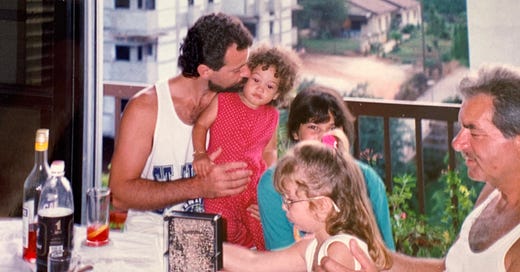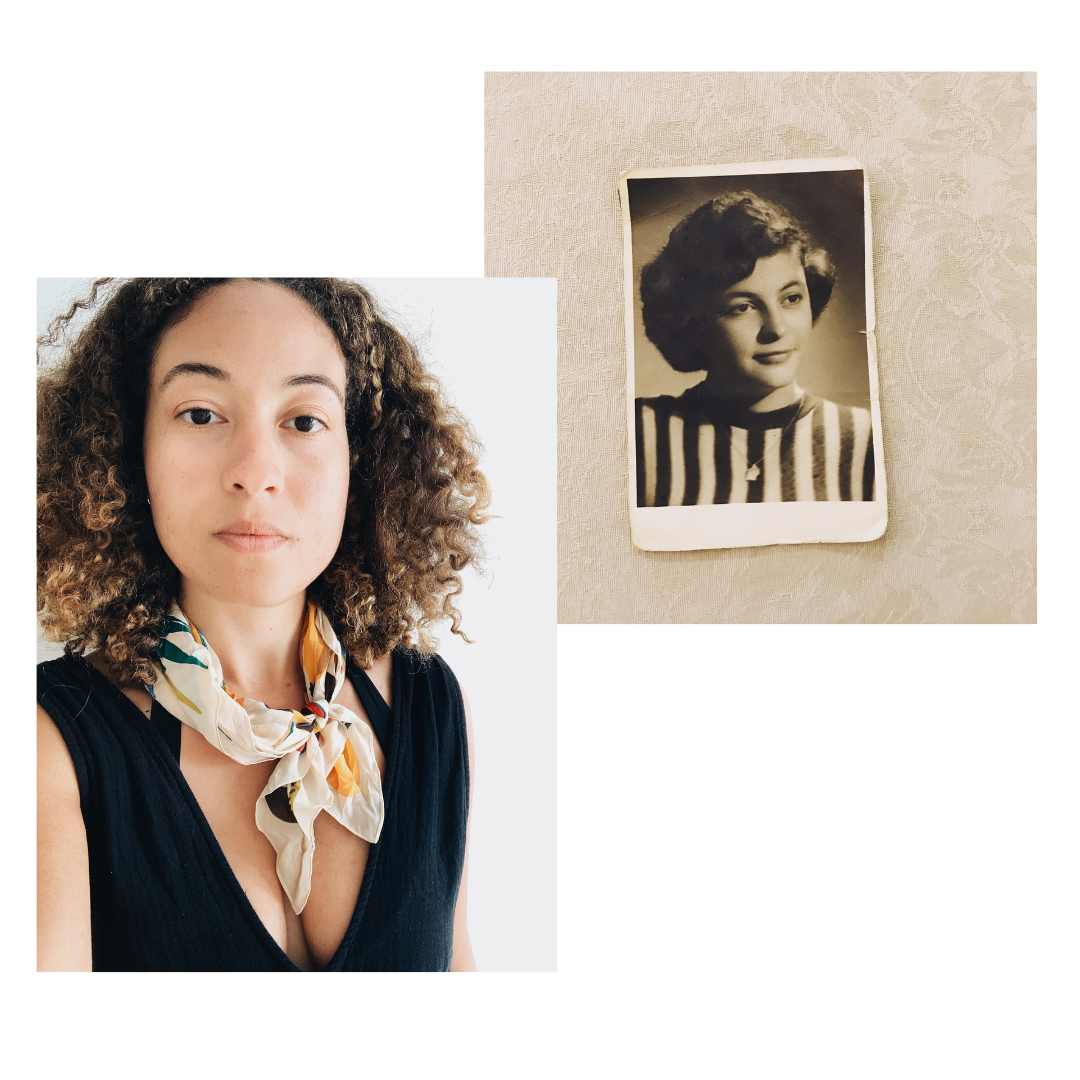Salat katzutz, or chopped salad, is a staple on most Middle Eastern tables. I grew up with this version of salad at almost every meal. The salad can be made up of many things, but classically, its components are ripe (yet sturdy) tomatoes, and crunchy Persian cucumbers, finely chopped. The mixture is dressed simply with good olive oil (emphasis on good), fresh lemon juice (a liberal pour if you’re like me and love a puckery bite), salt, and pepper. It’s so simple yet somehow the flavor that results from these ingredients is tantalizing.
Last night I was working on some hand-building pottery at Makeda’s studio and we got into a deep conversation about ancestral and holistic healing. Her family is from the South and her grandparents carry the lineage of African remedies in their bones. Growing up, Makeda took part in many homemade rituals and healing remedies. She told me a story from when she was 5 years old. She came down with a bad fever, and her grandfather covered her in a specific, wet leaf. In a few hours, her fever broke. She told me that her mother continued these traditions, raising her on oil supplements and special teas. We laughed about the diasporic nature of naming plants and never having an exact idea of what it’s actually called. I related to her with my Trinidadian grandmother and her ways. We laughed about our shared trauma over castor oil cleanses (it’s the REAL DEAL) and one that Makeda’s mother still does to this day: she takes an olive oil shot cut with lemon, to detoxify the intestines. “It’ll clean you out,” Makeda said, her eyes wide. When I heard this cleansing combination, I couldn’t help but recall my Israeli grandmother’s love of the bottom of the chopped salad bowl.
Growing up, on those sticky hot summers spent in Israel, we all knew that the end of the salad bowl belonged to my grandmother. “Tivili et ha salat” Pass me the salad, she’d say. And though the bowl was pretty much empty, save a few floating bits of cucumber skins and tomato seeds, she’d bring the bowl to her lips and suck down the leftover juice, She’d smile with deep satisfaction, lowering the bowl to her chest. She loves the “mitz” (juice). It’s the best part, she’d say.
Salat Katzutz is my comfort food. In fact, my ultimate favorite meal is Trinidadian stewed chicken, a crispy corner piece of macaroni pie, and a big bowl of chopped salad eaten with a spoon to soak up all of that citrusy, spicy juice. Doesn’t that combination just feel like a warm hug?
My dad is the designated salad maker in our family. He carried this dish with him when he immigrated to the United States in the 70s. He made it as he learned how to live in America, and while he built a business—coming home after a long day of work and fastidiously diving into the meticulous work of chopping the vegetables for this dish. He’d make this salad for all of our family gatherings—a hodgepodge of cultures coming together. My dad was the only one to leave Israel, so our family gatherings leaned heavily on my mum’s extended family which spans many cultures, but none of which are Israeli. My dad would whip out his party trick—a big heaping bowl of this lovingly chopped salad. As people took their first bites they would be delighted by the flavors that burst off their spoons. Eventually, the salad was non-negotiable. “Ron is making the salad” was a statement and not a question.
When I moved to Israel for college, I was overjoyed to eat so many incredible versions of this salad. I’d have tiny bowls of it with my beloved traditional Israeli breakfast, served with a strong cappuccino and lots of bread and spreads, and for many a lunch at Cafeneto, a version that offered larger chunked pieces sat atop a big crusty end of bread that soaked up all the delicious juices at the bottom of the bowl. Salat katzutz was always the centerpoint of dinner at my grandparent’s house in Kfar Saba, the door to the patio wide open allowing beautiful warm air to waft in. The wind carried with it the light scent of baked bread and the flowers my grandmother planted through the kitchen. Bowls of things peppered the table—roughly sliced avocado, hummus, olives and simple bread. Sometimes there were hard-boiled eggs, and a big Tupperware filled with brine and pickled Persian cucumbers bobbing about awaited our fingers to fish one out.
Some time ago, I met Molly Yeh at a conference called Jubilee hosted by Cherry Bombe Magazine, and in 2019, I trekked to Maine to take a workshop she was hosting. She talked about how her life was transformed by a visit to Israel and how salat katzutz left a mark on her. She told us how, on most summer mornings, she makes herself a heaping bowl of this chopped salad to eat for breakfast. It was the middle of August and I was inspired. I spent the rest of that summer making myself this salad for breakfast.
And in reminiscing on this, I am feeling as though this coming summer will lend itself kindly to this breakfast once more.
I was home last weekend and decided to chat with my aba (dad) as he made us this salad to accompany our fish dinner.
I hope you enjoy this little video, and that you might make yourself your own salat katzutz. I promise you won’t regret it.







Chopping veges into small pieces is one of my least favorite things when it comes to cooking. I have to admit, though, that your Aba does make it look simple, relaxing and delicious! So I look forward to making it. Thank you for introducing us this family tradition and to your father! Best wishes for continuing success with On Holiday!